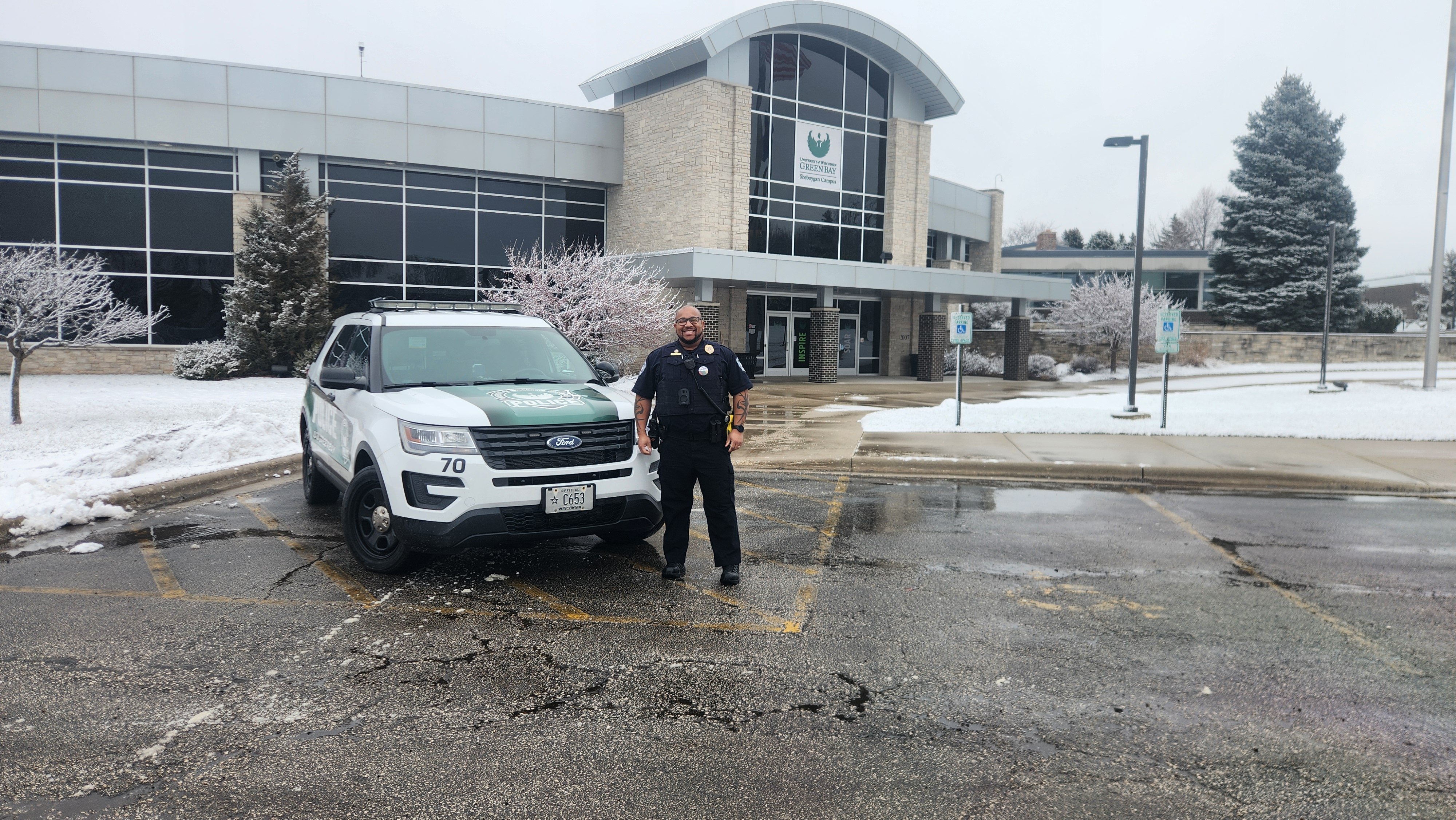Black History Month
Inclusion in Leadership
Posted on Feb 21, 2024 9:00:00 AM by Greater Green Bay Chamber

In honor of Black History Month, the Greater Green Bay Chamber is putting a spotlight on Black owned businesses and offering ways to support them in a blog miniseries. Today, AJ Walker with the University of Wisconsin-Green Bay Police Department shares his thoughts on inclusion in leadership.
Please introduce yourself and tell us about your role at the University of Wisconsin-Green Bay.
I am AJ Walker. I serve as the police lieutenant for University Police here at UWGB. We are a full-time police department with eleven full-time officers, three part-time officers, four student workers, and one administrative assistant. I run patrol operations and the administrative functions within the department, such as training, records, and community policing. I formerly worked for the City of Green Bay Police Department as a School Resource Officer before moving over to UWGB.
How would you describe your leadership style?
Leadership is a journey. I draw my leadership style from experiential learning derived intently from the styles and philosophies of great leaders who have preceded me. While in the US Army, I learned to lead from the front by being an expert in my field and training future leaders to a military standard. As I have aged, I have learned that I still need to be an expert; however, I must allow others to lead. Understanding this dynamic has allowed me to transition to a more defined support role, enabling my officers’ professional development and maturation. My goal is to prepare my replacement for the nuances of leading within the policing profession.
What principles do you rely on as a police officer, and how does your unique background influence your interactions with the community?
When I took over as a School Resource Officer, I realized I was the first Black person to hold such a role in the City of Green Bay. I made it this far by adhering to four unique principles: trust your ability to speak, be informed, pause and think, and be humble. Being the only Black officer working in schools gave me perspective as countless children of all ethnicities and races gravitated toward me because I came with different experiences and hopes for their success. Growing up as a Black man in America, alongside some hard, uncompromising work ethic, shaped who I am.
Why is creating an inclusive environment important in the workplace?
Over the years, I’ve come to understand that effective problem-solving often hinges on grasping the complexity and nuances of various viewpoints. An inclusive workplace facilitates nuanced problem-solving from diverse perspectives. Agreement isn’t always necessary to drive progress; instead, collaborative approaches are vital for supporting the growth of both the company and the community. In the policing world, we serve everyone. I serve everyone, and that means understanding how to bring solutions. Inclusivity can help with that.
How can community leaders promote inclusion, and how can the broader community offer support?
Opportunity. That’s it. Several years ago, I joined the Leadership Green Bay Class of 2021. The chance to learn and connect with local leaders, subject matter experts, and community members has broadened my perspective on effecting change within our community. As a police officer, I seek solutions beyond my profession and strive to give back to our community. I also recognize the significance of forging coalitions to bolster student success in northeast Wisconsin. Leadership Green Bay and CYP are great starting points for generational opportunity and change.
Is there anything special you do to celebrate Black History Month?
Recently, I was asked to serve as a staff advisor for a student organization. The Men of Color Alliance (MOCA) serves three roles: to give male students of color a space to converse, to support student success through access to resources, and to provide an introduction to community networking. As I power through my doctoral program, I see an increasing need to dive deep into how we support men of color as they persist through their educational journey. These young people are my life’s work.
